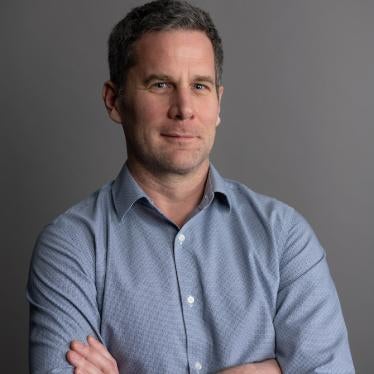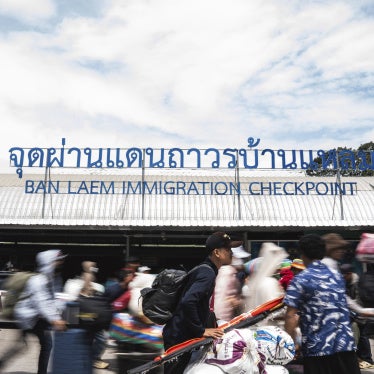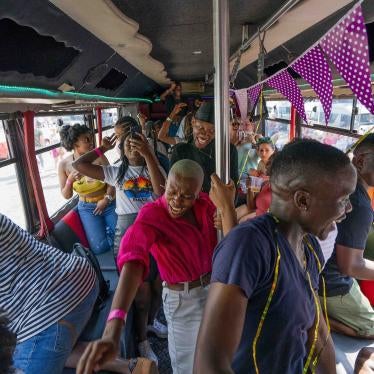Across the world, unprecedented numbers of asylum seekers and migrants are turning to boat smugglers and risking or losing their lives in the world's oceans. So far this year at least 1,800 people have drowned in the Mediterranean. Instead of mustering life-saving political will, countries are responding with policies to keep them out and deter others from heading their way.
Human Rights Watch has documented smuggler and even some trafficker abuses of boat migrants. But governments' rhetoric presenting migration flows as a smuggling problem looks like a lame attempt to justify blocking migration and to deflect attention from the consequences of their own policy failures. Governments' restrictive measures and lack of safe and legal admission alternatives means smugglers are often asylum seekers' only hope of reaching safety.
Sixty percent of the approximately 75,000 people reaching European Union shores this year come from Afghanistan, Eritrea, Somalia and Syria, countries that are ravaged by armed conflict or serious human rights violations. Fences and pushbacks at EU land borders with Turkey mean that many Syrian and Afghan asylum seekers have no option but to take boats across the Aegean to reach the EU.
Recent EU commitments to increase Mediterranean search-and-rescue operations could save many lives, but other proposals, such as destroying smugglers' boats, may do more harm than good.
In Asia, ethnic Rohingya fleeing persecution in Burma -- among others -- are also turning to smugglers in record numbers. Indonesia, Malaysia and Thailand responded by towing unseaworthy smugglers' boats out to sea, even after they had been drifting for weeks or months without adequate food or water. These countries claimed they had no duty beyond refueling stranded boats and replenishing their water supplies. In response to an international outcry, they agreed recently to temporarily accept new arrivals yet demanded that other governments resettle them within a year.
These measures follow Australia's practice of towing "illegal boat arrivals" out into the high seas, and other steps like diverting asylum seekers to remote off-shore processing centers that the government says aim to stop smuggling. Prime Minister Tony Abbott has refused to resettle in Australia any refugees from the centers and has rejected the plea of his southeast Asian neighbors to resettle any of the Rohingya boat people. "Australia will do absolutely nothing that gives any encouragement to anyone to ... get on a boat, [to think] they can work with people smugglers to start a new life." But other than saying, "Nope, nope, nope," has Mr. Abbott provided real alternatives?
His and other governments should respond to these crises with effective search-and-rescue operations that swiftly take the rescued to the nearest safe harbor and give them access to fair and efficient asylum procedures. Governments should also provide safe avenues to asylum seekers seeking protection, ease restrictions on family reunification, and increase refugee resettlement. Finally, anti-smuggling efforts should not put the rights or lives of migrants and asylum seekers in jeopardy or deny them access to the international protection that is their right.
Gerry Simpson is the senior refugees researcher and advocate at Human Rights Watch.








